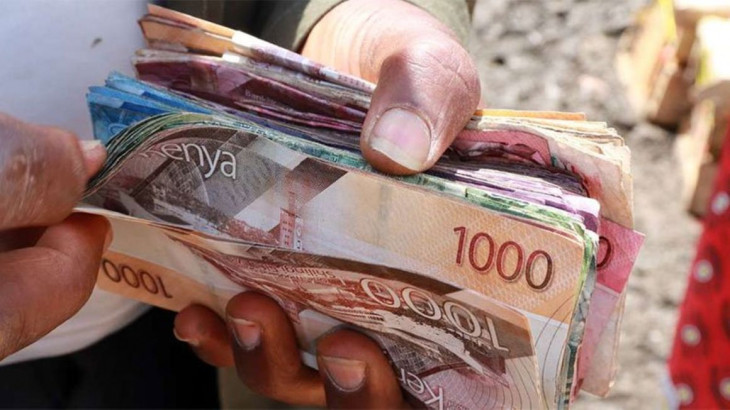Luxury hotels change tact, warm up to domestic tourists

As part of its strategy to expand its tourism market basket, Kenya has declared its intention to attract international luxury travellers.
The absence of international tourists coupled with travel restrictions occasioned by the Covid-19 pandemic has resulted in reduced travel globally.
Speaking recently in Masai Mara National Reserve as he welcomed tourists aboard the inaugural Roar Africa and Emirates Executive Private Jet Safari- (a World-Class Conservation Safari), Tourism and Wildlife Cabinet Secretary Najib Balala said that the destination is proving to be attractive to luxury travellers, especially with Kenya having unique travel opportunities.
“This visit by a high-level delegation is testament to the fact that Kenya is being considered by the niche luxury traveller who is attracted to specific experiences and offerings.
Our goal is to build on this as we work towards expanding into different market segments in the short and long term,” he said.
The thirst for the luxury client has led to an increase in luxury hotels, not just in Kenya, but across the continent to cater for such clients.
However, while many hotels turned their focus on domestic tourists to survive the harsh effects of the pandemic, their high-end counterparts faced the challenge of convincing local tourists that they could also enjoy their services.
“Historically most lodges and camps have been focusing on international clients and neglecting the local market,” says Thomas Omulo, the General Manager at Olepangi farm in Timau, Laikipia county.
Closed shop
“When Covid-19 hit, some of these operators chose to change their business model
and made themselves attractive to resident clients, thereby surviving the pandemic and keeping their doors open for business.
On the other hand those businesses that remained defiant and kept to their original business models have struggled a lot and unfortunately most of them couldn’t keep up and ended up closing shop,” he continues.
Having worked at a high end hotel and observed how things work, Thomas recommends that their survival is to strike a balance between the local and international guests.
As a General Manager in a high-end lodge currently, Thomas notes that the domestic market always comes through when things get bad.
“I would recommend that they strike a balance between the local and international markets because hospitality and tourism is a very delicate industry and can collapse at the slightest provocation by events, such as post-election violence, bomb attacks and pandemics.
The local market will always help cover up in such instances, not entirely though, because of the low charges.
They should embrace local tourism. International tourism brings in better margins financially, but not entirely sustainable whenever the above challenges occur,” he explains.
Since he was appointed as the general manager of Mahali Mzuri, one of the high-end properties that was recently awarded the best hotel in the world by Travel and Leisure in 2021, Wilson Odhiambo has been active in encouraging more Kenyans to experience the camp.
“In 2019, we introduced the resident rates of USD350 (Sh38,700) per person sharing.
It didn’t pick up so well, because traditionally Kenyans have always perceived the property as a preserve for foreigners and not somewhere where they too can enjoy given the fact that it has always operated on nonresident rates since inception,” he explains.
Having worked for international camps, such as Singita and being the first local general manager in both Singita and Mahali Mzuri, Wilson observes that perception what what is keeping Kenyans from visiting such camps. “Most of these high-end properties don’t come cheap.
They are expensive and if you look even at the resident rates that of around Sh57,000 per person sharing or 86,000 for single residents, it’s still a lot of money for a common citizen.
In addition, these are high-end properties and they target the a niche market of high spenders, which is if you have the money, you are always welcome to spend it at the camp,” he continues.
Wrong perception
When Mahali Mzuri offered resident rates, Orlando observes that Kenyans visited the property in large numbers.
As the general manager of Angama Mara, another high-end camp at the Mara, Azei notes that perception is what stops Kenyans from visiting such properties. “People don’t know that they can come here and enjoy.
Kenyans love thriving in the familiar and that’s why you will find that Mombasa has always been a popular destination for most,” he observes.
While most Kenyans have a holiday mindset, Azei notes that most love last minute bookings making them not save enough cash to experience such camps and hotels.
“Unless you are a millionaire, booking at the last minute will mean spending at an affordable camp or hotel, which will often be at a cheaper rate.
Most international guests plan for years to come to these places. They will come here and tell us that they have been saving some for 10 years just to tour our continent.
As much as they have a higher level of income, their lifestyle is more expensive so they need to save.
Travel doesn’t come cheap and they understand that bit,” he continues.
Most of the camps, in a bid to encourage diversity are incorporating more locals to manage these outfits, a shift also meant to encourage locals to visit the camp.
“Yes we need the foreign tourist up to a certain point, but not all the way,” says Azei who was recently appointed as the General Manager at Angama.












